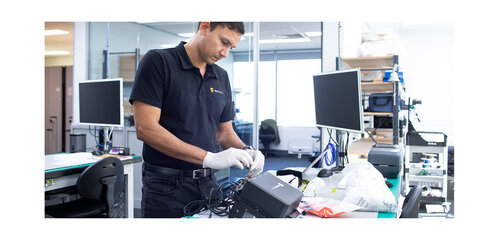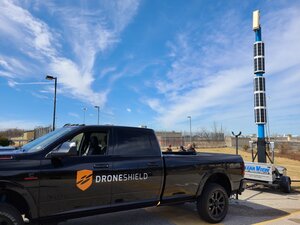Drone technology is evolving rapidly in almost every industry. New, upgraded models are being released every year with better, more advanced features to serve various purposes. Commercial drones like DJI Mini 3 Pro offer high-quality cameras and obstacle-avoidance sensors for wildlife photography and casual flying. In the agriculture industry, drones are majorly used for pest control, soil analysis, mapping, and aerial survey. The media industry also benefits from drone technology, allowing journalists to take footage of news events in challenging environments. Drones with electronic warfare capabilities see the fastest development due to the current international conflict between Ukraine and Russia.

As drones get more accessible and affordable, airspace is getting more crowded with untrained pilots. More countries release drone laws and no-fly zones to regulate commercial drones in the national airspace. Even so, rogue drones are still seen circulating in restricted areas above the maximum altitude every now and then. Multiple drone sightings cause airport disruption, costing airlines and countries massive financial losses. Stadiums and public events are not prone to drone disruptions either. A drone went rogue after losing connection and ended up delaying the Seattle Seahawk game last September, forcing both teams to clear the field over safety concerns.
Drones that fly above the permitted altitude pose risks to manned aircraft as well as people and properties on the ground. In May 2022, an EasyJet plane almost collided with a drone that flew just 40ft away from the aircraft at Gatwick. In 2021, an Envoy Air passenger plane hit a drone while departing Chicago’s O’Hare Airport. The plane landed safely with no injury to passengers or crew, but the threats remained the same. Furthermore, there have been many occurrences where inexperienced pilots crashed their drones into public (and sometimes historic) properties causing costly damages and jeopardising public safety.

Let us not forget the countless number of criminal acts and terrorist attacks carried out by drones. In November, The Correctional Service of Canada went into lockdown after a drone dropped a suspected firearm, cell phones, and drugs on the facility’s grounds. The latest drone strikes by Russians have been plaguing Ukraine’s airspace since October 2022. From drone warfare to contraband smuggling, airspace has become a battleground that calls for stricter regulations and better protection efforts.
This is why drone defense or C-UAS is necessary. The counterdrone protection technology allows security personnel to detect, identify, and intercept unwanted or hostile drones. Counterdrone defence systems offer advanced detection and warning of UAS presence in private properties, special events, and no-fly zones – forcing trespassing drones to either ground or return to their operator.
DroneShield pioneers C-UAS technology to mitigate the risks of drone operations in various industries. We incorporate next-generation Electronic Warfare (EW), Signals Intelligence (SIGINT), and the power of artificial intelligence (AI) to develop world-leading C-UAS AI. Our state-of-the-art counterdrone protection solution comes with sensors for monitoring airspace and ground parameters as well as detecting and neutralising any UAS threats by grounding drones or returning them to their operators.

DroneShield offers counterdrone protection for public and private sectors, including but not limited to airports (C-UAS airports), prisons (C-UAS Prisons), and events (Counterdrone Stadiums). Visit our website to browse our range of products and each of their capabilities.




Comments